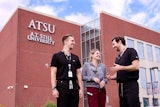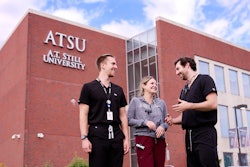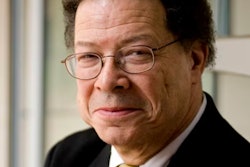In my previous post, I shared the story of my discovery of the now-defunct National Negro Health Week (NNHW) and Booker T. Washington’s role in establishing it. I would paraphrase their major message as, “If health is the doorway to the future of the race, education is the key.”
On a related note, I am sharing another resource I discovered relative to diversity, education and Black and Hispanic health. Like my discovery of NNHW, it has reinforced for me the significance of leveraging education and educational institutions to address not only health but also broader concerns in diverse communities.
While doing research for a presentation on the state of Black health, I stumbled across the National Urban League’s Report on Black-White Equality. NUL also has a Hispanic-White Equality report. Created annually for the last 13 years and released every spring around May, the report presents a relative measure, called the “National Equality Index,” of the gap between Black and White equality. It is calculated based on five weighted sub-measures: economics (weighted 30 percent), health (25 percent), education (25 percent), social justice (10 percent), and civic engagement (10 percent).
As an engineer and researcher at heart, I was excited to see hard data and objective calculations being used to describe something as subjective as the gap between Black and White equality. And, of course, I was glad to see health represented in the set of measures included.
However, as a Black American, I was confused why I hadn’t heard of it before, whether on the news or in conversation on related topics. It is said, “You don’t know what you don’t know” and I didn’t know that I didn’t know about the report. But once I did, I wanted to know why I hadn’t known. I like to think that I roll with a pretty educated crowd, so I started to ask others in my circle if they had heard of the report. They had not.
I had to think to myself, am I hanging with the wrong people? Maybe I need to find, as one friend described it, my “tribe” – a group of friends who share not only my education level but also my passions, beliefs and values. Friends who will talk about all of the things that would interest me or know about all of the things that I want to know. But why should I need a special group of people to become aware of, in this case, possibly the only current measure of a topic we should all be interested in?
This whole matter had me internally remaking the case for public education and access to education, especially on topics related to diversity issues and solutions. And it reconfirmed my long-held belief that the educational system has its work cut out in terms of providing students, especially diverse students, the information and resources they need to truly solve the problems of the day.
The Black-White Equality Report is one of the few stakes in the ground on not only the state of Black-White equality, but solutions to improve it. How could I make others aware of it? As an intellectual, I wanted to debate the merits of the report’s details, i.e. what metrics were used, how the weightings were determined, how the outliers affected the final scores. However, who would I debate if so few others knew about it? I was now as interested in getting others educated about the report as I was in learning what it contained.
So, what did it contain? What was my “discovery?” And did it tell a story similar to NNHW about the relationship between health and education?
The report can be used to provide evidence to support Washington and the NNHW’s claims. If groups are created based on similar report scores, health and education are in the same group. Given the relative score ranges for each group, it would seem the health and education group is uniquely positioned to provide the highest potential for impact on Black-White equality.
Good health and higher education levels are generally accepted factors in better economic outcomes and social opportunities. Thus, healthy, educated people (80 percent and 78.2 percent equality levels, respectively) have the greatest potential to improve issues related to social justice and economics (55.6 percent and 57.4 percent equality levels, respectively), such as economic inequality and social injustice.
Given this, the fact that both health and education are hovering at a “passing grade” level suggests that improvements in these areas could, as Washington suggested, be the key to solving issues of inequality. As further evidence, given that its mission is to support improvements, particularly in social Justice and economics, and considering its level (roughly “equal with our peers” (i.e.100.6%)) relative to them, civic engagement appears to be more of a reaction to or symptom of inequality than a lever to impact it positively.
As Washington and NNHW asserted, although health and education are the major levers, you can’t achieve health without education, specifically knowing (being educated) about what health looks like and how to achieve it. Education also is necessary for students of all races, religions, genders and creeds to play a role in improving the underlying realities of inequality, impacting all of the measures represented in reports such as the National Urban League Report in a methodical, effective way.
Education, it appears, is ground zero. If this is true, higher education institutions have an important responsibility to provide what I call a “social competency” curriculum that includes not only a health component, but shares resources and studies of social realities and encourages dialogue, debate and, ultimately, solution development to effect larger change.
Tanya Leake is a certified health coach, wellness presenter and group fitness and dance instructor based in Atlanta.















